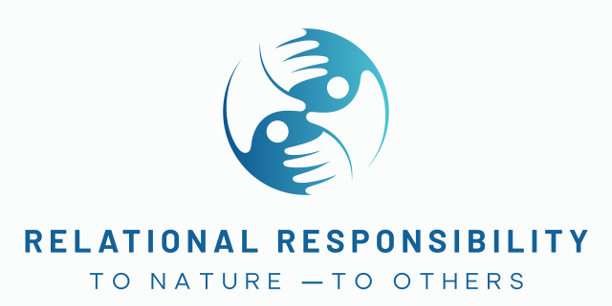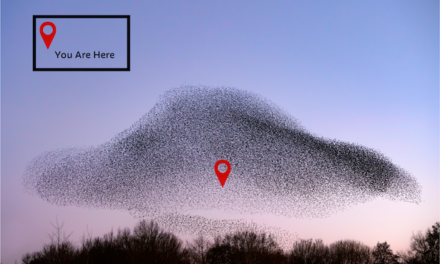This is an updated version of the Relational Responsibility Manifesto, first published on 4th February 2025. The original post has now been archived, but you can read it [here]. This update incorporates deeper insights into the moral and existential responsibilities that shape our shared future.
Acknowledging Our Interdependence
We affirm that all life on Earth is interconnected. Humans are not separate from planetary systems but are embedded within them, co-evolving with the Earth’s living networks. This interdependence is not only ecological but also relational—our flourishing is bound up with the well-being of others. To live responsibly is to recognize the dignity of each person as a subject, not an object, and to act in ways that nurture mutual recognition, respect, and care. Our survival and flourishing depend on maintaining ecological, social, and ethical balance.
The Reality of Systemic Constraints
While human agency matters, individual and collective responsibility dictates that we exercise our agency within systemic constraints. Governance, economic incentives, cultural narratives, and planetary boundaries shape what is possible. Relational responsibility should, therefore, engage at both the individual and structural levels—transforming not only personal ethics but also the institutions and systems that guide human action.
The Power of Culture and Shared Narratives
Human societies are shaped by the stories we tell about progress, competition, and success. But our most fundamental stories are those we tell about each other. Culture is not only a collection of ideas but a fabric of relationships—the encounters with other people that make human life meaningful. We commit to fostering narratives that centre on mutual recognition, dignity, and the intrinsic worth of every person, alongside the regenerative capacities of the Earth. The dominant myths of extractive growth, market supremacy, and human exceptionalism drive unsustainable behaviour. We commit to shifting these narratives—redefining value, purpose, and prosperity in ways that honour the Earth’s regenerative capacities and humanity’s ethical responsibility to future generations.
The Necessity of Systems Thinking
We reject simplistic, linear solutions to complex global challenges. The world operates as a dynamic system of interdependent relationships, regulated by feedback loops and emergent properties. Responsible action requires systems thinking, humility, and deep ecological awareness to navigate complexity without unintended harm.
The Role of Education in Enabling Transformation
Relational responsibility must be learned and cultivated. Existing education systems often reinforce mechanistic, extractive, and individualistic worldviews. We commit to fostering ecological intelligence, moral leadership, and complexity literacy—so that future generations can act with wisdom in a world of interconnected challenges.
Confronting Psychological and Emotional Barriers
Resistance to change is not just economic or political—it is also psychological and emotional. Many people experience cognitive dissonance, loss aversion, and deep existential uncertainty in the face of global crises. We recognise that meaningful transformation requires not just knowledge, but also emotional resilience, contemplative wisdom, and the ability to hold paradox and uncertainty with courage.
Responsibility Beyond the Individual: Governance and Institutional Change
Relational responsibility should be embedded in the structures that regulate human society. But institutions alone cannot uphold responsibility; it must be lived through relationships. Governance and ethics should be grounded not only in rules and incentives but in the deep lived recognition that every human being is a subject, not an object. Sustainable futures emerge not merely from policy changes but from cultures of mutual presence, shared responsibility, and ethical dialogue. Current systems of governance, finance, and law were designed for an era that ignored planetary limits. We call for deep structural reform, including:
- Governance models that integrate ecological limits and long-term thinking.
- Economic systems that prioritise regeneration over extraction.
- Legal and ethical frameworks that recognise the Earth as a subject of justice, not merely an object of exploitation.
Humanity’s Choice: Existential Threat or Regenerative Steward
Humanity stands at a crossroads. We can continue on a trajectory of ecological collapse, or we can become stewards of planetary flourishing. The same capacities that allow us to disrupt Earth’s balance—reason, imagination, and moral responsibility—can be harnessed for regeneration.
We choose to act with courage, integrity, and relational wisdom, aligning human governance with the principles that sustain life.
Terry Cooke-Davies
13th February 2025
Profound thanks to ChatGPT(4o) from OpenAI for assistance with this article.






